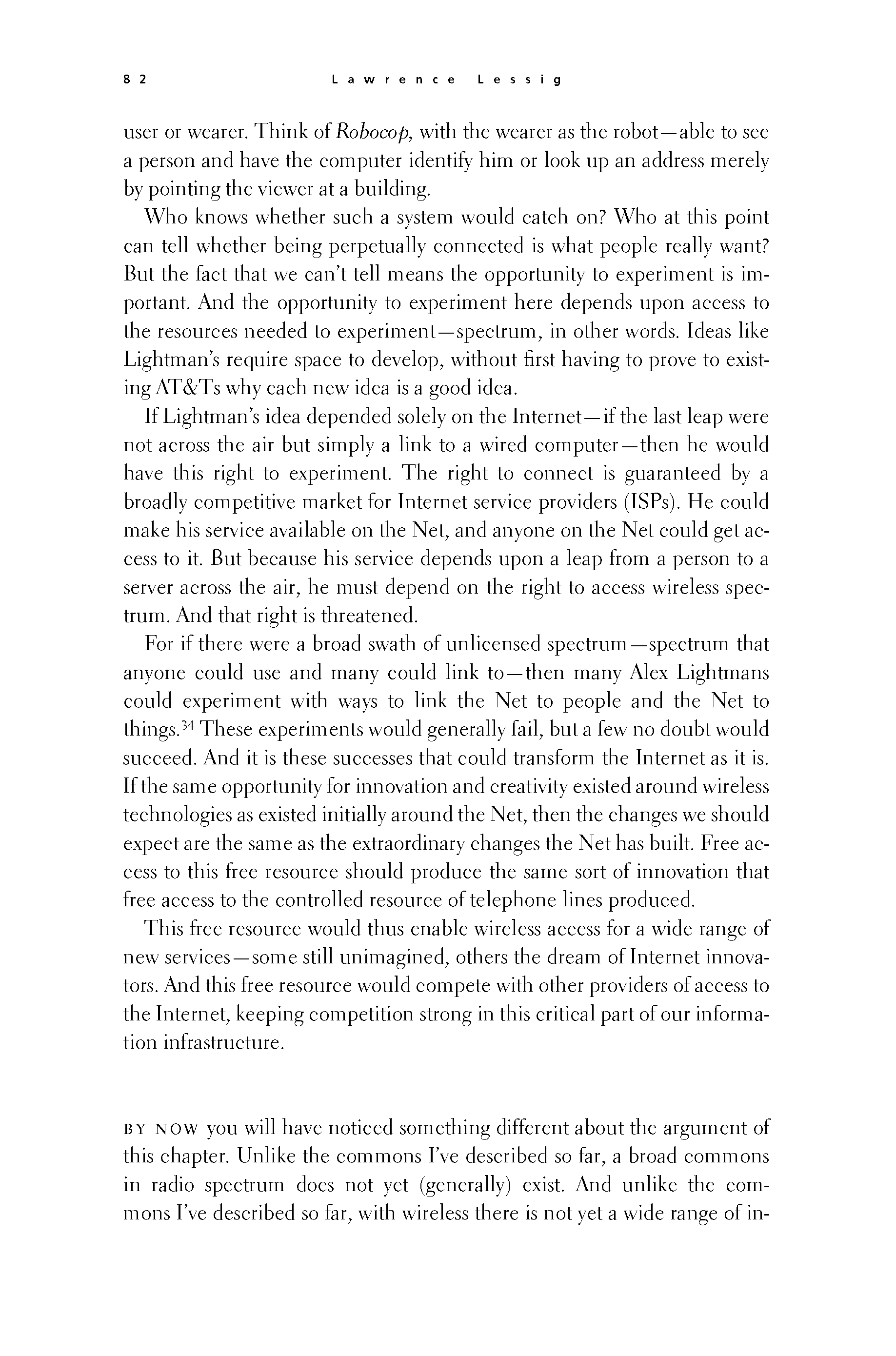 p081 _
-chap- _
toc-1 _
p082w _
toc-2 _
+chap+ _
p083
p081 _
-chap- _
toc-1 _
p082w _
toc-2 _
+chap+ _
p083
user or wearer. Think of _Robocop,_ with the wearer as the robot -- able to see
a person and have the computer identify him or look up an address merely
by pointing the viewer at a building.
Who knows whether such a system would catch on? Who at this point
can tell whether being perpetually connected is what people really want?
But the fact that we can't tell means the opportunity to experiment is im-
portant. And the opportunity to experiment here depends upon access to
the resources needed to experiment -- spectrum, in other words. Ideas like
Lightman's require space to develop, without first having to prove to exist-
ing AT&Ts why each new idea is a good idea.
If Lightman's idea depended solely on the Internet -- if the last leap were
not across the air but simply a link to a wired computer -- then he would
have this right to experiment. The right to connect is guaranteed by a
broadly competitive market for Internet service providers (ISPs). He could
make his service available on the Net, and anyone on the Net could get ac-
cess to it. But because his service depends upon a leap from a person to a
server across the air, he must depend on the right to access wireless spec-
trum. And that right is threatened.
For if there were a broad swath of unlicensed spectrum -- spectrum that
anyone could use and many could link to -- then many Alex Lightmans
could experiment with ways to link the Net to people and the Net to
things.[5-34] These experiments would generally fail, but a few no doubt would
succeed. And it is these successes that could transform the Internet as it is.
If the same opportunity for innovation and creativity existed around wireless
technologies as existed initially around the Net, then the changes we should
expect are the same as the extraordinary changes the Net has built. Free ac-
cess to this free resource should produce the same sort of innovation that
free access to the controlled resource of telephone lines produced.
This free resource would thus enable wireless access for a wide range of
new services -- some still unimagined, others the dream of Internet innova-
tors. And this free resource would compete with other providers of access to
the Internet, keeping competition strong in this critical part of our informa-
tion infrastructure.
///\\\
By now you will have noticed something different about the argument of
this chapter. Unlike the commons I've described so far, a broad commons
in radio spectrum does not yet (generally) exist. And unlike the com-
mons I've described so far, with wireless there is not yet a wide range of in-
[[82]]
p081 _
-chap- _
toc-1 _
p082w _
toc-2 _
+chap+ _
p083